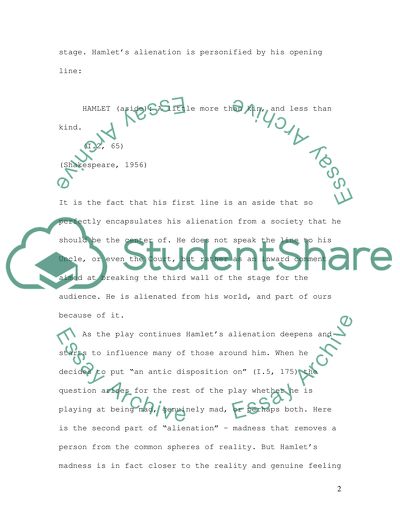Cite this document
(The Character of Hamlet in the Course of the Play Essay, n.d.)
The Character of Hamlet in the Course of the Play Essay. Retrieved from https://studentshare.org/performing-arts/1532602-alienation-in-hamlet
The Character of Hamlet in the Course of the Play Essay. Retrieved from https://studentshare.org/performing-arts/1532602-alienation-in-hamlet
(The Character of Hamlet in the Course of the Play Essay)
The Character of Hamlet in the Course of the Play Essay. https://studentshare.org/performing-arts/1532602-alienation-in-hamlet.
The Character of Hamlet in the Course of the Play Essay. https://studentshare.org/performing-arts/1532602-alienation-in-hamlet.
“The Character of Hamlet in the Course of the Play Essay”, n.d. https://studentshare.org/performing-arts/1532602-alienation-in-hamlet.


